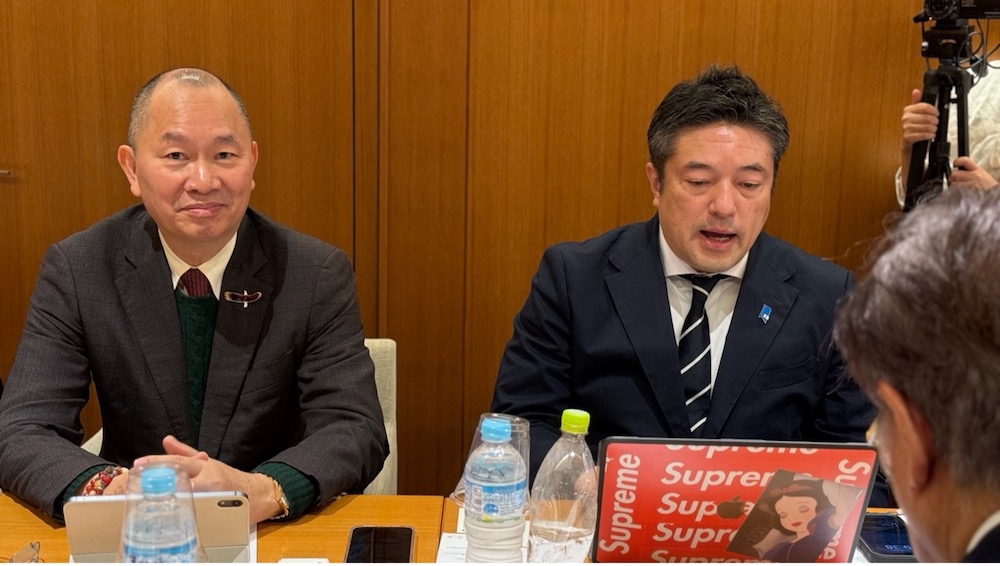Yasuhide Nakayama, Tokyo, March 28, 2025
Today, the world stands at the beginning of an era unlike any before―a time of tremendous technological change. Among these changes, artificial intelligence (AI) is already transforming how our economies and societies function, and the financial world is no exception.
We must guide this transformation so that it leads to prosperity and safety for all people. The proposal I present today―the Abe Financial AI Protocol―is a framework inspired by the vision and values of the late Prime Minister Shinzo Abe. It provides direction for how financial systems should operate in the age of AI.
Prime Minister Abe always based his policies on universal values: freedom, democracy, the rule of law, and human dignity. The Abe Financial AI Protocol is also built on these principles. It aims to create a financial system that is open and secure, where trust and transparency support innovation. This protocol reflects the idea of “Society 5.0”― a society where technology serves people―and embraces the concept of “Data Free Flow with Trust (DFFT),” which Japan has championed on the global stage.
With these frameworks, we seek to make sure AI brings benefits to many, while protecting human rights and dignity.
Prime Minister Abe often said, “Without economic revitalization, there can be neither national prosperity nor national security.” This belief is at the heart of the economic strategy behind this protocol. By using financial technologies (fintech) and AI, we can drive economic growth, improve financial services, and create new industries. In doing so, we can once again revitalize Japan’s economy and tackle long-term challenges such as our aging population. These efforts carry forward the spirit of Abenomics―a policy focused on inclusive growth that reaches all citizens.
At the same time, innovation must always go hand-in-hand with safety and security. In the financial world, the misuse of AI can pose serious threats―from destabilizing the economy to disrupting daily life.
We must protect society against AI-driven financial crimes, cyberattacks on infrastructure, and the harmful use of new technologies. Just as Prime Minister Abe strengthened Japan’s national security under the idea of “Proactive Contribution to Peace,” this protocol places great importance on defending our financial systems in the AI era. We must update legal frameworks, ensure transparency in algorithms, and give our regulators and law enforcement the tools they need to keep us safe.
In addition, allow me to speak from the perspective of a politician. Japan once achieved remarkable postwar recovery and high economic growth as a nation built on “processing trade.”
With few natural resources, Japan’s greatest asset has always been its people. Under a fixed exchange rate of 360 yen to the US dollar, our country leveraged human talent and technological skill to open new markets and compete on the global stage.
Today, however, we face a new set of challenges―population decline, a low birthrate, and an aging society. We must not cling to past successes, but instead develop new strategies for sustainable growth. The keys to this will be greater productivity and stronger international technological cooperation.
In particular, we should pay close attention to Israel, a nation involved in some form with roughly 70% of the world’s startups. Their strength lies in creating “0 to 1” innovations―groundbreaking ideas that are then absorbed by Silicon Valley and global tech giants like GAFA (Google, Apple, Facebook, and Amazon), leading to worldwide success.
Japan, too, must import such deep technologies from Israel and other innovative ecosystems, refine and commercialize them at home, and export them to the world as “Made in Japan” products. In this way, we can rebuild ourselves as a 21st-century processing trade nation. Japan has the discernment―the “mind’s eye”―to distinguish what is genuine. With this, we can form partnerships with global startups and implement a national strategy focused on enhancing productivity.
Just yesterday, I received a presentation from the Dean of the School of Science and Engineering at Waseda University and several student entrepreneurs. I strongly felt that Japan’s younger generation is filled with promise. The technologies they are creating―from zero to one―will surely be commercialized and implemented in society very soon. And yet, I couldn’t help but think how unfortunate it would be to waste the time between now and then.
We must also learn from the world, bring in the best ideas, and work together with countries and organizations that can offer synergy.
Let us not be distracted by political conflicts. Instead, let us keep our focus on what truly matters. Let us set clear national goals and build a new future―together.
In closing, I would like to express my heartfelt gratitude to all of you who have gathered here today and to everyone who actively participated in our discussions. I offer my deepest respect and appreciation to Governor Michael Dukakis and Mr. Nguyen Anh Tuan for their outstanding leadership of the Boston Global Forum and their tireless efforts in organizing this event. I also extend my sincere thanks to Ms. Nobue Mita, Special Assistant to the Chairman of the Boston Global Forum, for her invaluable support in advancing this protocol and in preparing this important conference.
Thank you very much for your kind attention.

